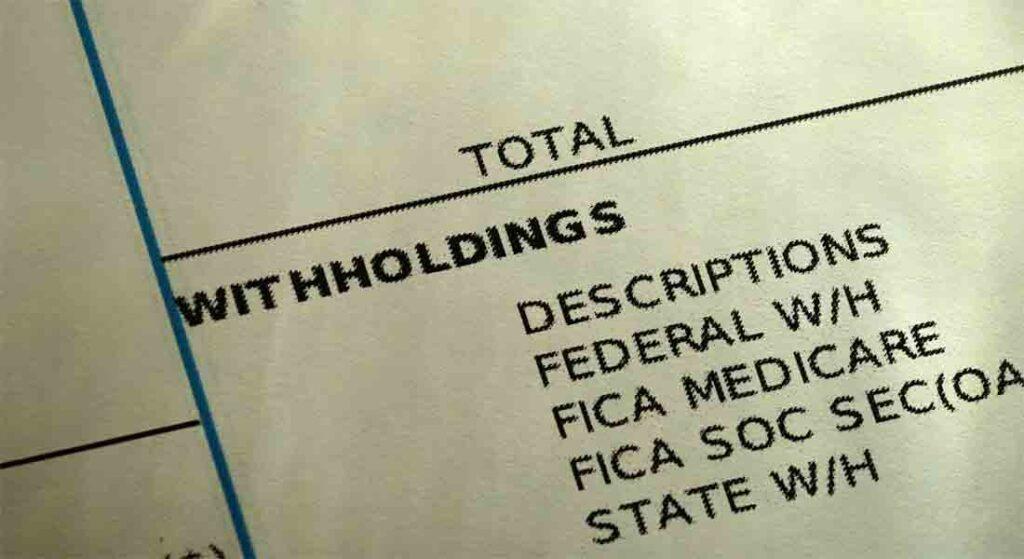


Does a Canadian resident need to worry about non-resident withholding tax or only a non-resident should be thinking about it? A Canadian resident when you are renting a premise that is owned by a non-resident, the Canadian resident needs to be aware of his obligation. A non-resident also needs to know his tax obligation as well the benefits of filing taxes in Canada.
A payer in Canada has the obligation to deduct non-resident withholding tax on certain types of income paid or payable to a non-resident of Canada. The Canadian income tax system is based on the residency status of taxpayers.
As a Non-resident in Canada, you have the right and responsibility to determine your tax status in Canada and pay taxes per Canada’s law to the Canada Revenue Agency (CRA). You may also need to file taxes in Canada. The tax rates and the benefits that apply to you will be different than those applied to resident Canadians.
Depending on the type of income you are reporting in your tax return in Canada, you need to choose the right type of tax package that you need to file. You may please contact your accountant who can help you in this matter.
If you in employed in Canada, you usually must have a Social Insurance Number (SIN) issued by service Canada. If you are not eligible to obtain a SIN in that case, you can apply for an Individual Tax Number (ITN) to CRA.
You are subject to Canadian income tax on most of your income that you have received or earned in Canada or from Canadian sources unless it is exempt under a tax treaty.
Under the Canadian income tax, two methods of taxation can be applied to calculate your tax liability. The first method is based on the nonresident withholding tax method. Under the non-resident withholding tax method, your tax obligation is usually completed under the Canadian Income Tax system when the payer deducts taxes from the income that you are entitled to be paid or earned. It is to be paid to you in the future; it is payable to you in other words. You do not need to file an income tax return in Canada and report your income and the withholding tax on your tax return.
Method 1 – Non-resident withholding tax

Canadian payer is to withhold 25% income tax and pay to CRA on certain types of Income. In certain situations, a reduced rate of withholding may apply if there are any tax treaty exists. Generally, these types of income include:
– Interest
– Dividends
– rental payments
– pension payments
– old age security pension
– CPP or QPP benefits
– retiring allowances
– registered retirement savings plan payments
– pooled registered pension plan payments
– registered retirement income fund payments
– annuity payments
– royalty payments
Generally, the above interest income is exempt from nonresident withholding tax if the parties deal at arm’s length.
Under this method, when the above nonresident withholding tax is withheld, you do not have to file a tax return unless you report rental income, certain pension income, or income from film and acting services. If you are reporting rental income, certain pension income, or income from film and acting services, in that case, you can choose to file a tax return and pay taxes using an alternative taxing method.
If you are a non-resident actor, the non-resident withholding tax rate that applies to you is 23%. You have the option to elect under section 216.1 of the Income Tax Act of Canada and choose to file your tax return in Canada. Your tax filing deadline is April 30th.
Under section 217 of the Income Tax Act of Canada, you can also elect to file your tax return for the following types of income:
– old age security pension
– Canada Pension Plan or QPPlan benefits
– superannuation or pension benefits
– registered retirement savings plan payments
– pooled registered pension plan payments
– registered retirement income fund payments
– death benefits
– employment insurance benefits
– retiring allowances
– registered supplementary unemployment benefit plan payments
– deferred profit-sharing plan payments
– arrangement for retirement compensation or the purchase price of an interest in a retirement compensation arrangement
– prescribed benefits under a government assistance program
– Auto Pact benefits
Method 2 – Tax on taxable income

Under this method, you will be able to file your income tax return in Canada in the year in which you have received or earned certain types of income. In your tax return, you will report your gross income from all sources in Canada, and you will be entitled to claim allowable tax-deductible expenses that you may incur to generate that gross income, and also report any nonresident withholding tax that has been deducted in that tax year from your income. Under this method, your tax liability is assessed in Canada based on your net income reported in that tax year. You may get a tax refund if your tax payable under this method is less than the total amount of non-resident withholding tax that has been deducted, and you have claimed for the tax year. Otherwise, you may have to pay tax if your total taxes payable exceeds the total amount of non-resident withholding tax in the tax year. A non-resident of Canada does report his worldwide income on his Canadian Income Tax return. You only report income that has been generated from all Canadian sources. Only a Canadian resident has to report his worldwide income from all sources in his income tax return in Canada. The tax filing forms and packages are different for a non-resident of Canada. Your accountant should advise you on which forms to be used. You also need to file your return by the due date. Generally, if you are reporting a business income, your due date is April 30th. If you are reporting business income on your income tax return or your spouse is also filing a tax return in Canada and reporting a business income, your filing due date is June 15th. However, when your tax filing due date is a Saturday, or Sunday, or a public holiday in Canada, then consider it filed on time if your file your income tax return the next business day. Please note that the due dates for filing your income tax returns, as explained above, are different based on the type of income you report. However, if you owe a tax amount, the due date to pay your income tax owing in both the above scenarios is April 30th, when you are filing your tax return in Canada, whether as a resident of Canada or as a non-resident of Canada, irrespective of your residency status, CRA charges you both for late filing penalty and late payment of tax owing.
The most common types of income that you must report on your Canadian tax return and file a tax return are:
– employment in Canada
– business income
– taxable scholarships, fellowships, bursaries, and research grants
– taxable capital gains from disposing of Canadian taxable property
The above information has been presented in a summarized form. You may need to contact your accountant for further information before considering the information’s applicability to your particular situation.
RKB Accounting has expertise in cross-border taxation and has been providing accounting and taxation services for the last fifteen years in Canada and USA. RKB services include incorporating a business on both sides of the border, bookkeeping, sales tax, payroll, and corporate and personal income tax. RKB’s expertise includes cross-border tax planning, long-term tax planning, helping business start-ups, business structure planning, and resolving complex tax matters. RKB a CPA(Delaware), CA(India), and CIA(USA) has over 25 years of experience in accounting and taxation in dealing with various countries in the world.
Disclaimer: Information in the blog/post/article has been presented for a broad and simple understanding. This is not legal advice. RKB Accounting & Tax Services does not accept any liability for its application in any real situations. You need to contact your accountant or us for further information.